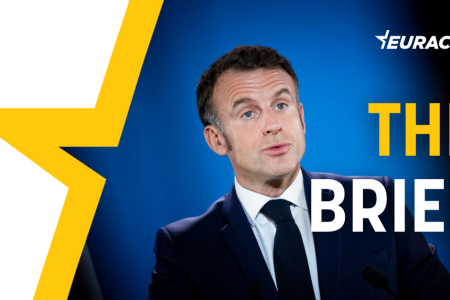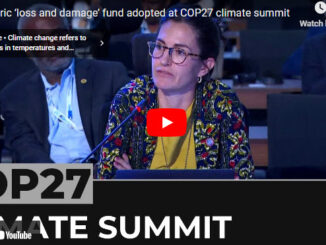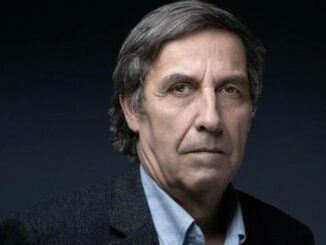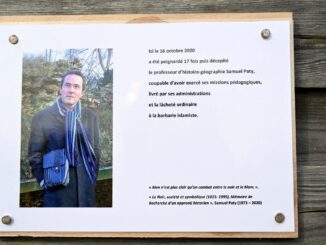
Today’s edition is powered by WeMove Europe
Peace now!
We all want to live in a world of peace, respect and dignity. Palestinians are being erased from the media, political conversations and their land. Almost 100.000 Europeans ask the new Commission to take action for lasting peace and recognise Palestine.
What if France stopped supporting a large European Union defence budget? Or defence eurobonds?
Legislation, in Brussels, is a result of the magic of compromise, followed by a vote. Compromises come after hours, weeks, and months of careful negotiations.
Each EU country does its best to see its interest represented. (After all, why not? Might as well try and get your way.)
To win, it’s best to have allies. Ideally, you need a blocking majority to show your club is prepared to shoot down a proposal and successfully argue for changes in the text. It is more difficult when you’re alone – or close to alone.
Unfortunately for the French, that is the case when negotiating defence industry-related funds and programmes. Even though Paris’ position is often exaggerated in public debates and minds, the French are indeed pushing the hardest for the strongest European preference – leaning against the use of common funds for foreign companies.
So far, it’s not going great for France.
France’s latest move to get its way, rumour has it, is to threaten to give up support for a big defence cash pot in the next EU budget or for borrowing money via Eurobonds.
Money talks among the 27 are already difficult – and bonds already have a bad reputation in Germany.
Paris’ change in position would only add complications at a time when the Commission and EU countries say they want to take charge of their own defence, plan together, and look for money.
It is too early to say what impact the French threat will have, or if they will keep their promise when the time comes to argue against the other countries in the spring.
Nevertheless, it is a stark reminder that there is a clear difference between EU countries in their common defence industrial strategy thinking: those who want first to tackle emergency needs and those who envisage a far-away autonomy from major suppliers, such as the US.
With earlier programmes to support joint procurement or ammunition production, the urgency was clear.
When considering the next 50 years, should EU money go to the EU defence industry only, massively benefiting French industry? Probably not.
But the legal base for EU-led defence programmes suggests their goal is primarily to boost the continent’s competitiveness, not its national security.
That’s the rule until the Commission’s legal service changes its interpretation, or the Court of Justice cancels previous defence programmes for wrongly interpreted treaties.
Now, everyone in Brussels and the defence business knows how much the French president cares about EU defence. He proposed programmes, wanted the domestic industry to flourish, and pitched the whole “strategic autonomy” concept.
Also, defence-related funds and programmes, like most EU legislation, are voted by a qualified majority, and not unanimity, contrary to what governments like to think (or pretend they don’t know), which could sideline the French.
But the budget is decided by unanimity.
The Roundup
European People’s Party insiders speak of increasing discontent with Chairman Manfred Weber, accusing him of putting his leadership before party and EU interests when handing socialist Commissioner Teresa Ribera’s confirmation.
Nordic justice ministers have demanded more concrete action from social media companies to combat the role of platforms in gang activity following an unsatisfactory meeting in Copenhagen on Monday.
Producer organisation, predictability and transparency are central to Commission measures proposed on Tuesday to strengthen farmers’ bargaining power in the food chain, Agriculture Commissioner Christophe Hansen told Euractiv in an interview.
The Northern Ireland Assembly will hold a crucial vote on Tuesday to decide on a cornerstone of the agreement between the United Kingdom and the European Union after Brexit.
Exposure to fine particulate matter from air pollution is linked to approximately 240,000 deaths annually in the European Union, according to a report by the European Environment Agency (EEA).
Around Europe
Romania – Bulgarian lawmakers want a parliamentary commission to investigate Russian influence, Ivaylo Mirchev, a member of We Continue the Change-Democratic Bulgaria told Euractiv.
Poland – Polish President Andrzej Duda appointed Bogdan Święczkowski as president of the Constitutional Tribunal, a body denounced as politicised by the previous ruling PiS (ECR) party.
Portugal – Portugal will ban mobile phones in grades 1-6 from next year, Education, Science and Innovation Minister Fernando Alexandre announced on Monday, citing the negative effects on children.
Italy – US President-elect Donald Trump’s praise for Italian Prime Minister Giorgia Meloni in a recent New York Post interview has sparked a number of conversations in Italy.
France – France’s budgetary crisis will be resolved, but challenges remain over Paris’ high debt levels and climbing deficit, Eurogroup President Paschal Donohoe said on Monday.
Look out for
11 December
- European Commission College Meeting – agenda includes: Orientation debate on EU-US relations, and the Communication on countering hybrid threats and strengthening security at the EU’s external borders.
- European Commission President Ursula von der Leyen participates in the Executive Committee meeting of the European Association Trade Union Confedration (ETUC).
- European Council President António Costa, European Parliament President Roberta Metsola, and Commissioner Dan Jørgensen receive President of Moldova Maia Sandu.
- Gender Equality Week: European Parliament online event on ‘Elimination of violence against women and their empowerment in the digital world‘.
- Commission Executive Vice-President Teresa Ribera meets with Andrzej Domański, Polish Minister of Finance.






